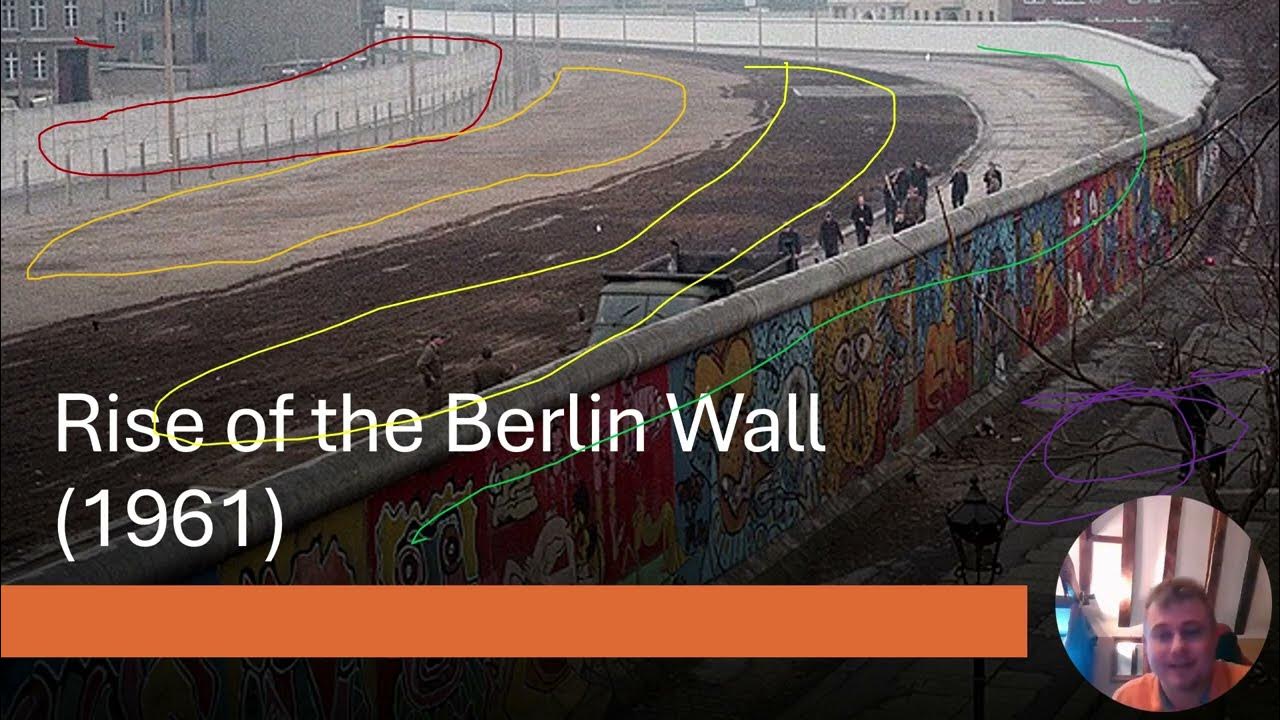A Crise Dos Mísseis De Cuba - 1962
Summary
TLDRIn 1962, the Cuban Missile Crisis brought the world to the brink of nuclear war between the US and the USSR. The crisis began with the US discovering Soviet missiles in Cuba. President Kennedy imposed a naval 'quarantine' rather than a blockade to avoid war. After tense negotiations, Khrushchev agreed to remove the missiles in exchange for a US promise not to invade Cuba. The crisis was resolved without conflict, and a hotline was established to improve communication between the superpowers.
Takeaways
- 🚀 The Cuban Missile Crisis of 1962 brought the world to the brink of nuclear war between the United States and the Soviet Union.
- 🗣 Political positions on both sides nearly blocked a resolution, but a last-minute compromise prevented a nuclear conflict.
- 🧨 The crisis was triggered by the deployment of Soviet ballistic missiles in Cuba, which were equipped with nuclear warheads.
- 🇷🇺 Soviet Premier Nikita Khrushchev feared that the nuclear imbalance could tempt the U.S. to launch a first strike.
- 🇺🇸 U.S. President John F. Kennedy was determined to prevent Soviet missile deployment in Cuba, especially after the failed Bay of Pigs invasion in 1961.
- 📸 U.S. intelligence discovered the missiles through aerial reconnaissance, with photographic evidence analyzed on October 14, 1962.
- 🛑 On October 21, 1962, Kennedy chose to impose a naval 'quarantine' on Cuba, rather than a military strike, to prevent Soviet ships from delivering more missiles.
- 📞 The crisis led to the creation of a direct 'hotline' between Washington and Moscow in June 1963 to improve communication and avoid future misunderstandings.
- ✉️ Khrushchev agreed to remove the missiles from Cuba in exchange for the U.S. pledge not to invade Cuba and secretly agreed to remove U.S. missiles from Turkey.
- 🌍 The Cuban Missile Crisis ended on November 20, 1962, with the dismantling of Soviet bombers in Cuba, averting a potential nuclear war.
Q & A
What was the Cuban Missile Crisis and when did it occur?
-The Cuban Missile Crisis was a major Cold War confrontation between the United States and the Soviet Union, occurring in October 1962. It brought the world close to nuclear war over the Soviet installation of nuclear missiles in Cuba.
What political positions did both the United States and the Soviet Union take during the crisis?
-The U.S. under President John F. Kennedy and the Soviet Union under Premier Nikita Khrushchev both adopted hardline political positions, with the U.S. demanding the removal of Soviet missiles from Cuba, and the Soviet Union viewing the missile placement as necessary to balance U.S. missile installations in Turkey.
Why did the Soviet Union decide to place missiles in Cuba?
-The Soviet Union, led by Nikita Khrushchev, feared that the U.S. might attempt a first nuclear strike because of an imbalance in nuclear capabilities. Placing missiles in Cuba was seen as a way to deter such an attack and protect Soviet interests.
How did Fidel Castro view the installation of Soviet missiles in Cuba?
-Fidel Castro was enthusiastic about the installation of Soviet missiles in Cuba, as it strengthened Cuba's defense, especially after surviving the U.S.-backed Bay of Pigs invasion in 1961.
What evidence first alerted the United States to the Soviet missile installations in Cuba?
-U.S. intelligence noticed increased Soviet shipping to Cuba in August 1962, and on October 14, 1962, photographic evidence from a U-2 spy plane revealed the presence of Soviet missiles in Cuba.
How did President Kennedy respond to the discovery of Soviet missiles in Cuba?
-After learning about the missile installations on October 16, 1962, President Kennedy formed the Executive Committee of the National Security Council to manage the crisis. He decided to impose a naval quarantine on Cuba, rather than launching a military strike.
What was the significance of Kennedy's use of the word 'quarantine' instead of 'blockade'?
-Kennedy chose the term 'quarantine' to avoid calling the action a 'blockade,' which is considered an act of war under international law. A quarantine was seen as a less aggressive measure, giving the U.S. more diplomatic flexibility.
How did the Soviet Union react to the U.S. quarantine of Cuba?
-The Soviet Union initially resisted the U.S. quarantine, with Khrushchev describing it as an ultimatum. However, behind the scenes, Khrushchev sought a diplomatic resolution to avoid war.
What compromise was eventually reached to resolve the Cuban Missile Crisis?
-The crisis ended when the Soviet Union agreed to remove its missiles from Cuba in exchange for a U.S. promise not to invade Cuba. Secretly, the U.S. also agreed to remove its Jupiter missiles from Turkey.
What measures were taken to improve communication between the U.S. and the Soviet Union after the crisis?
-Following the Cuban Missile Crisis, the U.S. and the Soviet Union established a direct communication link known as the 'hotline' between Washington and Moscow in June 1963, to prevent future misunderstandings.
Outlines

Cette section est réservée aux utilisateurs payants. Améliorez votre compte pour accéder à cette section.
Améliorer maintenantMindmap

Cette section est réservée aux utilisateurs payants. Améliorez votre compte pour accéder à cette section.
Améliorer maintenantKeywords

Cette section est réservée aux utilisateurs payants. Améliorez votre compte pour accéder à cette section.
Améliorer maintenantHighlights

Cette section est réservée aux utilisateurs payants. Améliorez votre compte pour accéder à cette section.
Améliorer maintenantTranscripts

Cette section est réservée aux utilisateurs payants. Améliorez votre compte pour accéder à cette section.
Améliorer maintenantVoir Plus de Vidéos Connexes

The Cuban Missile Crisis Explained In 20 Minutes | Best Cold War Documentary

How a Nuclear World War 3 Almost Happened

The Cuban Missile Crisis (1962)

Cuban Missile Crisis - The Failed Checkmate - Extra History - Part 1

11. Kennedy v Khrushchev

Putin’s Nuclear Threats Evoke Cold War Tensions of the Cuban Missile Crisis | Retro Report
5.0 / 5 (0 votes)
